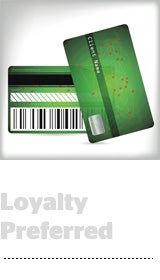 Consumers don’t mind sharing personal information with retailers, but they have varying preferences when it comes to the manner in which their data is collected, a new study says.
Consumers don’t mind sharing personal information with retailers, but they have varying preferences when it comes to the manner in which their data is collected, a new study says.
In a survey of 2,500 shoppers in the US and Canada that started last spring, IT services and consulting firm Cognizant broke down consumer sentiments on myriad retail topics such as the in-store experience, pricing and promotions, multichannel retail and personalization.
A personalized experience was among the highest-rated in-store features a retailer could provide consumers, the study found. Survey respondents were asked how they would rate retailers’ techniques to provide personalized shopping experiences.
On a scale of 1-5, the technique that took the strongest rating, a 3.9, was for stores to provide preferential or special treatment based on loyalty status. Second to that was being acknowledged as a highly valued customer of a store and delivery of personalized in-store offers, which dually scored a 3.5.
As for the collection of data, consumers rated tracking by way of their loyalty numbers the best – scoring a 3.2 out of 5. The more personal the information requested at the point of sale, the less consumers liked it.
Respondents gave a 2.8 to the collection of name, email address and address to register for a website account. Unsurprisingly, the Cognizant report found consumers are wary of tracking through cookies, credit card number or geolocation services on mobile. These were among the lowest-rated data collection techniques, despite respondents’ expressed interest in personalized promotions.
The Cognizant study also outlined some key retail “myths,” not the least of which included consumers’ perceptions and purchase comfort with mobile. Eighty-four percent of consumers ranked laptops and desktop computers as their preferred device for online shopping, while a staggeringly low 3% of annual purchase transactions were reportedly made on a mobile device, the study said. So, although the jury is out about mobile’s role in research vs. fulfillment of sale, it’s obvious consumers are still comfortable with more traditional means of transaction.













